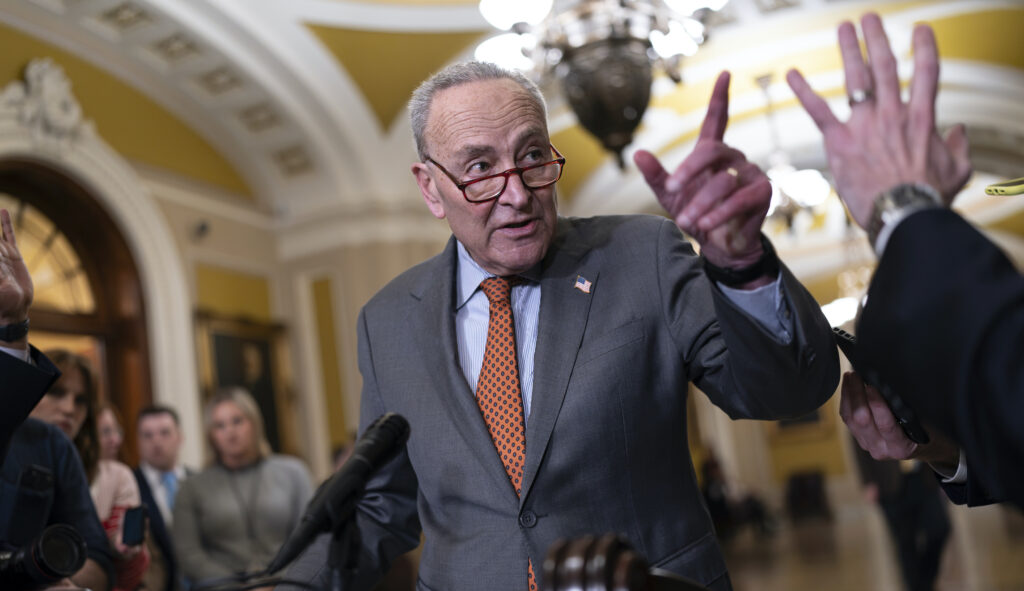
The Senate took the first step toward funding the government on Tuesday as time runs short to avoid a partial shutdown.
The upper chamber voted 68-13 to advance the Duck Stamp Act, a bill that will be repurposed to extend government funding into March.
Congressional leadership reached a deal on top-line spending earlier this month but still has to hammer out the details of that agreement. The extension would give lawmakers six more weeks to pass their annual appropriations bills, shifting the current funding deadlines to March 1 and March 8.
Getting the legislation through the Senate before Friday at midnight, when funding lapses for the first set of spending bills, won’t be easy.
The chamber operates by unanimous consent, meaning a single senator could delay the process into the weekend. But the Senate has been able to avert past shutdowns by reaching a time agreement that speeds up passage.
Senate Majority Leader Chuck Schumer (D-NY) expressed his intention to pass the continuing resolution by Thursday.
“The focus of this week will be to pass this extension as quickly as we can,” he said from the Senate floor on Tuesday. “Time is of the essence.”

That would give the House one day to pass the measure before it’s sent to the White House for President Joe Biden’s signature.
The Senate met on Tuesday despite a winter storm that prompted votes to be canceled in the lower chamber.
There is little appetite in Washington for a shutdown even as the Republican-led House is at odds with Senate Democrats on federal spending.
Speaker Mike Johnson (R-LA) secured a top-line agreement with Schumer that makes only modest cuts to the IRS and COVID relief funding, but he’s vowed to pursue policy riders Democrats consider to be “poison pills” as part of the appropriations process.
That drama will play out in the coming weeks as conservatives demand more concessions out of Democrats, who control the Senate and White House. But hard-liners will not stand in the way of Johnson accepting a short-term funding extension in the interim.
CLICK HERE TO READ MORE FROM THE WASHINGTON EXAMINER
A dozen Republicans ground House business to a halt earlier this month in protest of the spending deal but allowed votes to resume after meeting with the speaker.
Johnson swore off continuing resolutions shortly after assuming the speakership in October but reversed course as the next funding deadline neared. The decision of his predecessor, Kevin McCarthy, to pass a short-term extension contributed to his ouster.






